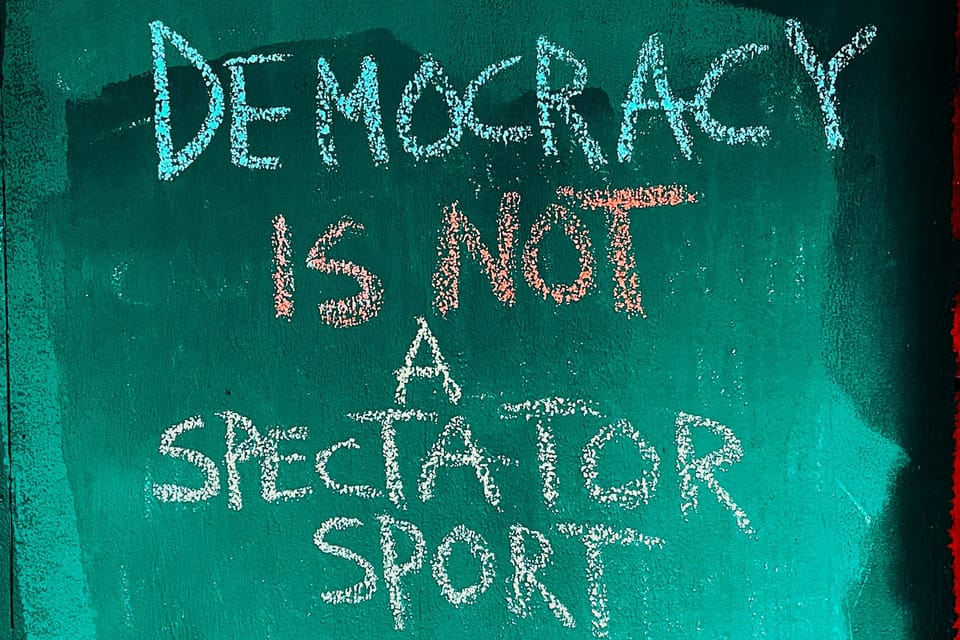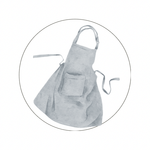A Resilient Path Forward: How Small Acts Build Big Hope for Democracy

As of August 6, 2025, it feels like all we ever hear about is the "downfall of democracy." It's in the headlines, on social media, and whispered (or hollered) over coffee with friends. The sheer weight of it all can be paralyzing. I know, because I've felt it. Sometimes it's easier to just turn off the news, scroll past the angry posts, and focus on dinner plans. But a nagging voice—the one that reminds you what's at stake—won't let you get too comfortable.
My own journey into this topic started with that voice. I’m not an expert, just a woman in the middle of her life who is trying to make sense of a world that feels increasingly chaotic. What I've come to realize is that hope isn't something you just feel; it's something you do. It's an active, strategic choice. And it’s not just for the experts or the politicians. It's for all of us. This is what I’ve learned, and what I want to share with you, so we can figure this out together.
What’s Happening, and Why It’s So Hard to See
If you’ve been feeling like things are off, you're not wrong. The data confirms a sobering trend: global freedom has been in a sustained decline for nearly two decades. In 2024, our world saw an unprecedented number of elections, yet many were marred by violence, intimidation, and deliberate efforts to restrict who could vote and how.
The real challenge today is that democratic erosion isn't happening with dramatic military coups as it did in the past. Instead, it’s a slow, quiet creep. It's "executive aggrandizement," where a leader gradually expands their power by chipping away at the independence of the courts or the media. It’s "incremental election subversion," where voter access is restricted and baseless lawsuits are filed to undermine trust in the results. These changes happen slowly, often through legal-sounding channels, making them harder for us to recognize and for the news to broadcast.
And yes, these global trends are happening here at home, too. In the U.S., we've seen efforts to restrict voter access, disinformation campaigns, and a profound polarization that makes it hard to talk to our neighbors, let alone our political opponents.
But here's a glimmer of light: even with all this going on, most Americans still believe democracy is the best form of government. That tension—between the chaos we see and the values we hold—is the exact spot where our power lies. We aren't watching an inevitable downfall; we're in the middle of a battle that a majority of us still believes is worth fighting. And that's where we start.
Your Small Act is a Big Deal
It’s easy to feel like your one voice, your one action, doesn't matter. The problems feel so big, and we are just… well, us. But history shows us that the biggest movements started with small, intentional acts by ordinary people.
Think about Rosa Parks. Her refusal to give up her bus seat wasn’t a random, tired moment; it was a planned act of civil disobedience that sparked the Montgomery Bus Boycott. Or the four college students who sat down at a segregated Woolworth's lunch counter in Greensboro, North Carolina. Their single sit-in started a movement that spread across the country and led to desegregation.
So, what are these "small acts" for us today? They're more than just grand protests. They can be everyday choices:
- Speaking Up: Having a respectful conversation with a friend or family member about an issue you or they care about.
- The Brazen Apron recommends Builders as one resource.
- Staying Informed: Taking a few minutes each day to read a reliable news source, so you can share accurate information instead of just headlines.
- The Brazen Apron recommends Ground News as your starting point.
- Showing Up: Volunteering a few hours a month for a cause you believe in, whether it's local government, an environmental group, or a food bank.
- The Brazen Apron recommends Idealist as your starting point.
- Supporting with Your Wallet: Choosing to buy from businesses that align with your values.
You don't have to overhaul your life to make a difference. The point isn't for you to do everything. It's for you to do something. When enough of us do our small thing, those individual ripples create a powerful, collective wave.
What We Can Learn from History
Throughout history, moments of democratic recovery have been driven from the bottom up by ordinary people. The fall of the Berlin Wall in 1989 wasn't the result of a single diplomatic meeting; it was the result of people literally tearing down the wall with their own hands. The Women's Suffrage Movement wasn't won overnight, but through decades of petitions, lobbying, and public demonstrations by thousands of individuals.
More recently, the #MeToo movement was sparked by a single tweet. The School Strike for Climate was started by one girl, Greta Thunberg, whose individual protest inspired millions. These examples show that the spark for change often comes from a brave, intentional act by one person, which then galvanizes a larger movement.
The key takeaway is this: our actions aren't just symbolic gestures; they are the fuel for democracy. But for that change to last, it has to lead to more than just a big protest. It has to lead to the quiet, hard work of strengthening our institutions, making sure our voting systems are fair, and holding our leaders accountable.
A Hope That's Active, Not Passive
Hope isn’t just a feeling of "I really hope things get better." It's a conviction that things can get better, and it's backed by a plan. This kind of hope gives us a sense of purpose and helps us get out of bed in the morning to face another day.
So, how do we cultivate this active hope?
- Find Your People: Working with others who share your goals naturally builds solidarity. Connect with like-minded individuals in your community. A sense of "we" makes all the difference.
- Reframe the Narrative: Instead of only talking about the problems, let's also talk about the solutions. Instead of dwelling on threats, let's focus on opportunities. A narrative built on enthusiasm and passion is far more sustainable than one built on fear and anger.
- Focus on Progress: Acknowledge and celebrate small victories. Did a local initiative pass? Did a new law protect voters? Those are big deals, and they remind us that our efforts aren't in vain.
- Be Kind: This is a big one. When you’re talking to people, lead with empathy. Truly listen to what others are saying, even when you disagree. Remember that your goal isn’t to "win" a debate, but to find a path forward. A little humility and a lot of grace go a long way in building the bridges we need.
The future of democracy isn't a foregone conclusion. It's a story we are writing, one courageous act, one shared conversation, and one collective effort at a time. So, what will your part be?
P.S. Feeling Intimidated by Your Representatives? You're Not Alone.
When I think about calling my representatives, I immediately feel a knot in my stomach. What if I don't know the bill number? What if they ask me a question I can't answer? It's easy to feel like you have to be a policy expert to make your voice heard. But that's not true. Your representatives work for you, and they need to hear from you, even if you don't have all the details.
Here are a few ways to get started that don't require you to be a pro:
- Write a Short Email or Letter: This is a great place to start. You don't have to be formal. Just write a few sentences about an issue that matters to you. You can find your representatives' contact information on their official websites or Congress.gov. Keep it simple: "I am a constituent in [Your City/Town], and I'm writing to ask you to support/oppose [Name of Bill or Issue]." No need for flowery language—just your name, address, and a clear message.
- Sign a Petition: Online petitions can feel like a small act, but they are tracked and often delivered directly to representatives. Groups that organize these petitions (like the ACLU, NAACP, or League of Women Voters) often have resources that make it easy to participate.
- Follow a Trusted Organization: Find a non-profit or advocacy group that you trust and follow their lead. They often provide scripts, email templates, and talking points for you to use. This way, you don't have to do the research yourself.
- Attend a Town Hall: You don't have to speak! Just showing up is a powerful way to show that you care about an issue. Your physical presence sends a message. You can listen to what others are saying and see how your representative responds.
Remember, your voice is valuable just as it is. It's not about being an expert; it's about being a citizen who cares. Your representatives' offices count every single contact, and they want to know what their constituents are thinking. So take a deep breath, and send that email. It matters.


Comments ()